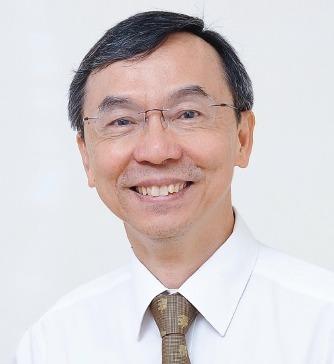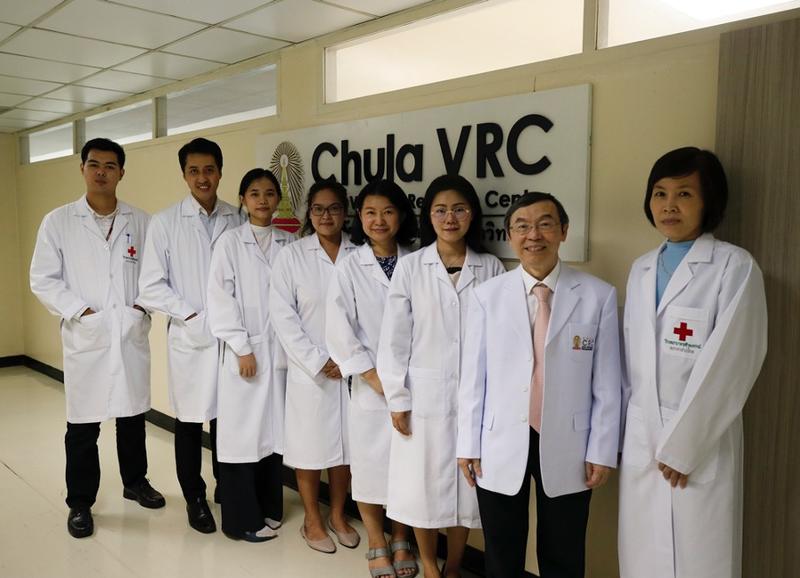Leading a team working around the clock to develop a COVID-19 vaccine, Thai researcher Kiat Ruxrungtham knows better than most the importance of global cooperation to tackle the pandemic.
 Kiat Ruxrungtham. (PHOTO PROVIDED TO CHINADAILY)
Kiat Ruxrungtham. (PHOTO PROVIDED TO CHINADAILY)
The pandemic "won't be the last one and you will see more coming", Kiat said.
"But a pandemic teaches the whole world and teaches us that we have to do something better than what humans have been doing, in terms of a real collaboration, a new commitment, and really caring about each other more than just making profits.
"This kind of pandemic paradigm is really a proof of friendship and partnership," he said.
Kiat is the scientific chair of Chulalongkorn University's Chula Vaccine Research Center and the director of the Chula-Cov19 vaccine development program. With a budget of up to 370 million baht (US$12 million), he and his team started to develop Chula-Cov19, a novel coronavirus vaccine, in Thailand in March. They are using the latest mRNA technology in collaboration with the University of Pennsylvania in the United States.
The vaccine has been put into two rounds of testing each on mice and monkeys, with both rounds showing impressive rates of generating neutralizing antibodies
The vaccine has been put into two rounds of testing each on mice and monkeys, with both rounds showing impressive rates of generating neutralizing antibodies.
An mRNA vaccine carries an mRNA sequence that is coded for a viral-specific antigen. Once delivered into target cells, the antigen will be recognized by the immune system to generate responses to the virus. Compared with traditional vaccines, the development and production cycle of an mRNA vaccine is often shorter.
"We are now able to convince the government to go further, to produce what we call the GMP (Good Manufacturing Practices) products for clinical trials so we can test it on Thai volunteers," said Kiat, who expects the human trial to start in November, or at least by the end of this year.
Kiat's team was initially funded by the university but is now mainly funded by the Thai government for the GMP production and phase 1 and 2 clinical trials. The government had earlier pledged US$158 million to support Thailand's efforts to develop a vaccine.
ALSO READ: Zhong Nanshan: China, Russia join force in vaccine clinical trials
Challenges exist
But there are many challenges the team needs to tackle to meet the timeline, Kiat admitted. Since Thailand does not have its own manufacturing facilities for an mRNA vaccine, Kiat's team had to produce the vaccine for clinical trials outside Thailand while preparing for technological transfer to a local company. Once this is transferred, the team will be able to start pilot-scale production around mid-2021.
 Kiat Ruxrungtham (second right) poses for a photo with his teammates at Chulalongkorn University's Chula Vaccine Research Centre. (PHOTO PROVIDED TO CHINADAILY)
Kiat Ruxrungtham (second right) poses for a photo with his teammates at Chulalongkorn University's Chula Vaccine Research Centre. (PHOTO PROVIDED TO CHINADAILY)
"Hopefully we might be able to produce a larger scale of vaccines for Thai people," said Kiat, who is aiming at a production capacity of at least 30 million doses. Ideally, this would be increased to 70 million doses to cover around half the Thai population.
Another challenge that Kiat's team had to deal with is the delay in logistics chains caused by lockdowns across many countries. "We were going to start (vaccine development) in February, but we had to start almost at the end of March," said Kiat, noting that some shipments from the US had been delayed for over a week.
Despite the challenges, Kiat said his team remains cheerful and motivated in their efforts to fight the pandemic. "Everyone is very proud of their work," he said.
In order to focus more on the vaccine's development, Kiat stepped down as the vice-president for research and innovation at the Bangkok university. "It is a very important mission," Kiat said.
Though anxious for good results from his team's vaccine research, Kiat said his hopes are not confined to the success of the Thai vaccine. "We hope to see more than one vaccine proven to be effective to prevent the transmission of the virus, or the severity of the disease," said Kiat.
READ MORE: WHO tempers hopes on vaccine efficacy
No matter which country successfully develops a vaccine first, Kiat said he hopes it can be available not only for the people of that country, but for those in need across the world.
According to the World Health Organization, more than 170 COVID-19 vaccines are under development worldwide, with 26 candidate vaccines in clinical trials, as of the end of July.


